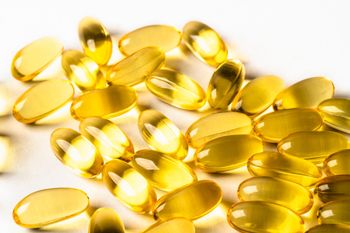
Probiotic supplementation may improve mood, demonstrates a recent study
A recent double-blind placebo-controlled study found that a daily dose of probiotics improved measures of mood in subjects.
A recent double-blind placebo-controlled study found that a daily dose of probiotics improved measures of mood in subjects. In the study, 38 subjects were either assigned to take a daily dose of a placebo, or a probiotic mixture containing Lactobacillus fermentum LF16, L. rhamnosus LR06, L. plantarum LP01, and Bifidobacterium longum BL04 for six weeks. Researchers assessed mood, personality dimensions, and sleep quality at the beginning of the study, at three weeks, at six weeks, and at three weeks of washout.
Results showed that there were no significant differences compared to baseline or between groups in the State Trait Anxiety Inventory or the Beck Depression Inventory. However, in the Profile of Mood State, a 58 item self-report questionnaire that measures subscales of tension, depression, anger, fatigue, confusion, and vigor, significant differences were found in the depression, anger, and fatigue subscales for those taking probiotics, compared to baseline.
Improvements in depressive mood state were seek at six weeks, and were maintained after three weeks of washout. Improvement in anger were seen at three weeks, and six weeks, and maintained after three weeks washout. Subjects saw improvement in fatigue at six weeks. Significant improvement in sleep quality was also observed in the experimental group at six weeks compared to baseline. Researchers found a significant correlation between sleep quality and mood-related questionnaires.
While the subjects taking probiotics saw a number of improvements in measures of mood and sleep, compared to baseline, and the placebo group did not, the differences between the groups was not statistically significant. That is not to say that the results were not revealing, and worthy of further study with a larger sample. “Our findings suggest that improving mood by means of probiotics intake might additionally determine changes in cognitive strategies to deal with problems by reducing sensitivity to negative situations, as well as the need to deal with them,” write Marotta et al. “Moreover, we speculate that ameliorating mood can differentially affect an individual’s predisposition, for instance, by facilitating novelty seeking.”
References:
1. Marotta A et al. “Effects of probiotics on cognitive reactivity, mood, and sleep quality.” Frontiers in Psychiatry, vol. 10 (2019)
Newsletter
From ingredient science to consumer trends, get the intel you need to stay competitive in the nutrition space—subscribe now to Nutritional Outlook.





